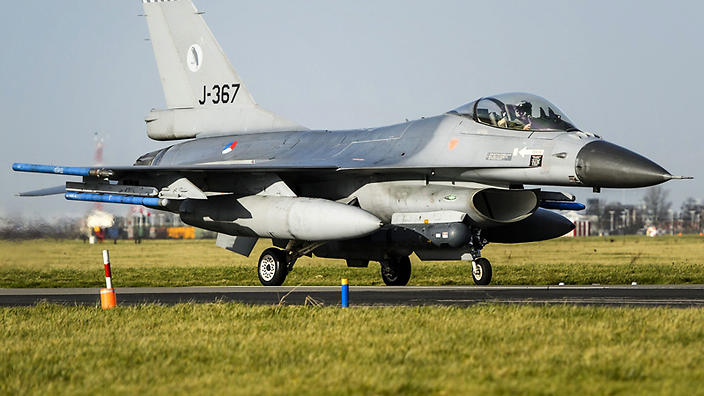The Prime minister has recently announced that 4 Dutch jets stationed in Jordan will begin bombing extremists in Syria.

A squadron of 4 Dutch jets is already carrying out bombing mission in Iraq. It will broaden its role within the American led coalition.
The government declared that Netherlands will widen its role within the international coalition to include targets pertaining to the Islamic State of Iraq and the Levant (ISIL). Dutch jets will start bombing these targets shortly.
A squadron of 4 Dutch jets – F-16 fighters – is currently stationed in Jordan, however, its mandate only included ISIL targets in Iraq.
These Dutch jets will now take part in the bombing campaigns over Syria until the 1st of July. The mandate of the Dutch jets includes ISIL positions including the groups training camps and operations centers.
The prime minster of the Netherlands, Mark Rutte revealed this decision by the government on Friday in The Hague
France and Britain have already stepped up their bombing campaigns in both Syria and Iraq after the deadly attacks in Paris in November last year. These attacks allegedly carried out by ISIL extremists, claimed more than 130 lives in separate but simultaneous attacks at various location within the French capital.
“We have decided to heed the call of our allies for expansion of the operational area of our F-16s to the east of Syria to further weaken ISIS’s supply lines and ability to advance. Only by taking away ISIS’s safe havens in Iraq and Syria can we prevent more attacks.”
Rutte confirmed using another name for the extremist group.
Besides the inclusion of Dutch jets within the international coalition to bomb targets in Syria, the government of Netherlands is also contemplating providing military hardware and equipment to Iraq. It is also planning to train Iraqi soldiers who are currently battling the terrorist group in Iraq. It is also revealed that moderate Syrian opposition groups will also be provided with funds for construction and maintenance of schools and hospitals.
The extension in the scope of the Dutch jets was made possible when the Labour party, currently partners within the governing coalition, stated that they will welcome such an idea. This created a parliamentary majority in favor of the widening of Dutch Jets’ scope in the Middle East.
In the Netherlands, foreign military interventions are considered a very sensitive issue. Dutch forces had led a UN peacekeeping mission in Bosnia in the 1990s. During this disastrous operation, around 8,000 Muslims were massacred by the Serbs.
In 2010, the government of the Netherlands collapsed owing to a controversy regarding military participation in Afghanistan where thousands of Dutch troops were actively participating with the ISAF.
